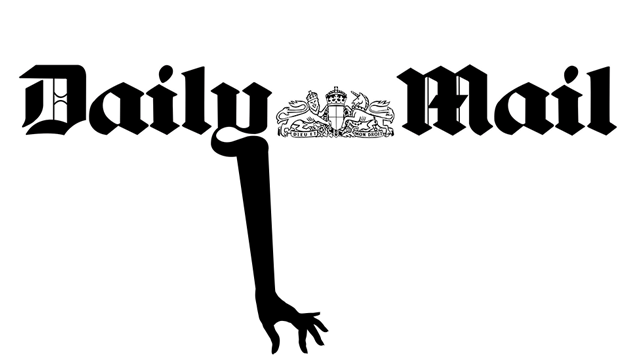From Gawker:
My Year Ripping Off the Web with the Daily Mail Online

On July 11 of last year, the last day I arrived to work at the MailOnline newsroom in New York City and saw Keith Poole, our managing editor, standing outside smoking a cigarette. Even from a hundred yards away, it was clear that Poole—a generally pleasant Englishman who was the managing editor of the Daily Mail at the time—was agitated. It didn't take a detective to figure out why.
Two days earlier, MailOnline, then the name of the online arm of London's Daily Mail tabloid newspaper, had issued a rare public apology, admitting it had published a bogus article about actor George Clooney's now mother-in-law, Baria Alamuddin. The story had claimed that Alamuddin, who is Lebanese, was telling "half of Beirut" that she opposed Clooney's then-upcoming marriage to her daughter for religious reasons. It had gone further to suggest that in the Druze religion—which the Mail falsely claimed Alamuddin practiced—marriages without family approval can result in the death of the bride.This anemic expression of regret was offered only after Clooney had written a scathing op-ed for USA Today spotlighting the inaccuracies in the Mail's piece and trashing the publication's reporting. Clooney rejected the Mail's half-hearted apology with an even harsher essay, re-published by blogs and news sites around the web, in which he called the Mail "the worst kind of tabloid" and wrote that it had constructed a "premeditated lie" in an effort to create "religious tensions where there are none.""Rough week?" I asked Poole after he'd finished his cigarette and stepped into the elevator."Haha. Yeah," he responded."Clooney?" I asked."Ugh," Poole shot back. "The lying bastard." (Poole says he can recollect having a brief discussion about the Clooney complaint with someone else in an elevator, but denies speaking with me and says he never called Clooney a "lying bastard.")And then he added: "Don't tell anyone I said that."
MailOnline—which has since changed its name to DailyMail.com in order to "mak[e] deeper inroads … with ad firms on Madison Avenue," according to the Wall Street Journal—has been widely hailed as a blueprint for the future of online journalism. It reaches hundreds of millions of readers, and it has hired former BuzzFeed COO Jon Steinberg to help turn those gargantuan traffic numbers into profit. Earlier this year, DailyMail.com acquired U.S.-based site Elite Daily, the so-called "Voice of Generation Y."The eager paradigm-proclaimer Michael Wolff used his USA Today media column last August to praise the Mail's business model as having succeeded where other, better-funded and more prestigious publications have failed. Under the headline "Daily Mail Solves Internet Paradox," Wolff lauded the publication's "180 million unique visitors a month" and suggested that if other publications want to survive the "digital migration" they should adopt a model similar to that of the Mail's.What Wolff failed to acknowledge: the Mail's editorial model depends on little more than dishonesty, theft of copyrighted material, and sensationalism so absurd that it crosses into fabrication.Yes, most outlets regularly aggregate other publications' work in the quest for readership and material, and yes, papers throughout history have strived for the grabbiest headlines facts will allow. But what DailyMail.com does goes beyond anything practiced by anything else calling itself a newspaper. In a little more than a year of working in the Mail's New York newsroom, I saw basic journalism standards and ethics casually and routinely ignored. I saw other publications' work lifted wholesale. I watched editors at the most highly trafficked English-language online newspaper in the world publish information they knew to be inaccurate."We do things a little differently than you might be used to," U.S. editor Katherine Thomson told me, early in my time there....MORE